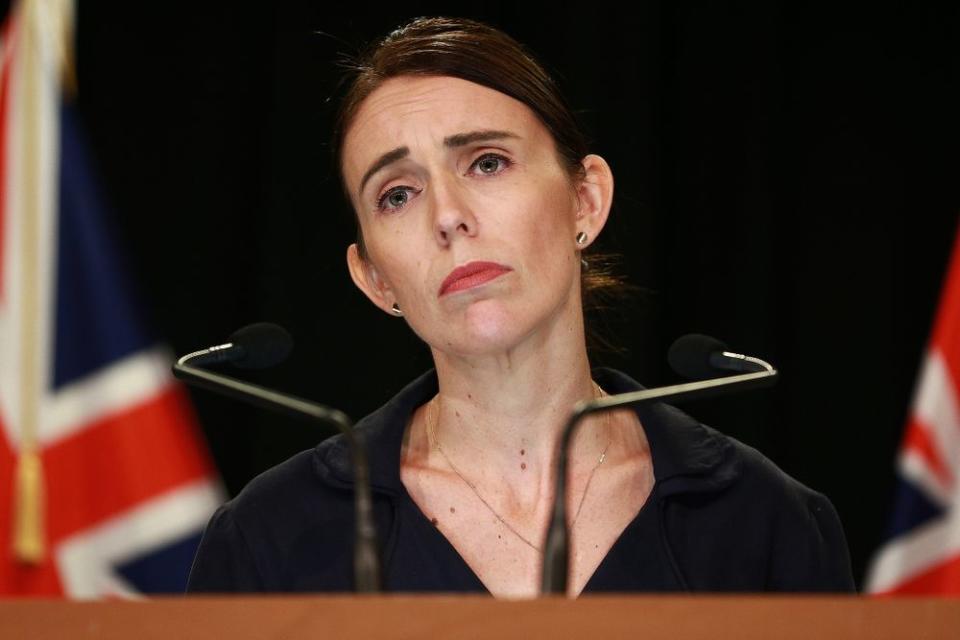New Zealand Mass Shooter Will Have Justice but Not Infamy: 'We Will Give Him Nothing. Not Even His Name.'

New Zealand’s prime minister vowed Tuesday to give not a single shred — not one second or one syllable — of recognition to the man who attacked two local mosques last week, killing 50 people.
“You will never hear me mention his name,” Jacinda Ardern told Parliament in her first address there since the mass shootings on Friday, the deadliest in the country’s modern history.
“That quiet Friday afternoon has become our darkest of days,” she said.
Ardern called the killer a “terrorist,” “criminal” and “extremist.”
“But he will — when I speak — be nameless,” she continued, “and to others I implore you: Speak the names of those who were lost rather than the name of the man who took them.”
“He may have sought notoriety,” Ardern said. “But we in New Zealand will give him nothing. Not even his name.”
RELATED: What to Know About New Zealand’s Prime Minister
Among those slain in the shooting was a woman trying to save other people including her husband, who is confined to a wheelchair, according to the woman’s nephew.
Husna Ara Parvin, 42, went with her husband to mosque last Friday as she did every Friday, her nephew Mahfuz Chowdhury told The Daily Start of Bangladesh, Husne’s country of origin.
According to Chowdhury’s account to the paper, Parvin went to the woman’s mosque while her husband, Farid Uddin Ahmed, went to the men’s mosque. When gunfire erupted in the men’s mosque, Parvin rushed to the scene and was fatally shot while Ahmed survived.
Chowdhury said the couple settled in New Zealand sometime after 1994.
Ardern said Tuesday that the suspect, a 28-year-old Australian man accused of murder, will face other charges. “The families of the fallen will have justice,” she said.

The suspected shooter appears to have circulated a rabidly anti-Muslim and white supremacist manifesto before the attack, at the Al Noor and Linwood mosques in Christchurch. Video of at least part of the shootings was also posted on social media.
“He sought many things from his act of terror but one was notoriety,” Ardern said. But she spent most of her time discussing New Zealand’s Muslim community, who lost so much.
“We cannot know your grief but we can walk with you at every stage. … Our hearts our heavy, but our spirit is strong,” she said.
Ardern also spoke out against Islamophobia and white nationalism — taking care to note that while the suspected mosque shooter was not from New Zealand, that did not mean those same ideas did not exist in New Zealand.
RELATED: Survivor of the New Zealand Mass Shooting Shares Horror of His Escape — ‘I Had to Run’
“We wish for every member of our communities to feel safe. Safety means being free from the fear of violence. But it also means being free from the fear of those sentiments of racism and hate that create a place where violence can flourish,” Ardern said. “And every single one of us has the power to change that.”
Ardern, her country’s youngest leader in 150 years, has been lauded for her response since the Friday attack, as the face of a grieving but resilient nation.
Her point about namelessness is a resonant one for anti-gun violence advocates and experts on violent threats: As mass shootings have become ever deadlier in America, they have pushed for media companies and other public groups to avoid focusing the discussion on the shooter or shooters — including naming them — so as to prevent the unattended spread of their ideas.
As one psychiatry professor said in 2015, according to the New York Times: “If you blast the names and faces of shooters on news stations and constantly repeat their names, there may be an inadvertent process of creating a blueprint.”
• With GREG HANLON

